
A Luxurious Life—For 70% Less—in Artsy, English-Speaking Penang
Back in Toronto, sleeping with the balcony doors open all year round wasn’t an option for Jacques and Sharon Giraud. But in their new life in Penang, Malaysia, it is.

In the U.S., small towns are dying. Once lively streets where people stopped to talk while picking up groceries or making deliveries are gradually fading into history. But the ache for that sense of community is as strong as ever—for neighbors you know, for a gentler existence based on strong ties and personal relationships.
In this issue we introduce you to the folks who have discovered that all the warmth of small-town life is out there waiting…overseas.
Growing up in west Georgia, Tony Boatright had a Huckleberry Finn fantasy of floating down the Chattahoochee River to the ocean and finding a tropical paradise. Now, 40 years later, Tony’s finally found it in Penonomé, Panama. “It’s just like where I grew up, the church is the focal point for festivals, store owners live above their businesses, and it’s got a small-town atmosphere.”
Judith Laroue made her home close to the beach in a small Nicaraguan town . “It’s easy to meet other expats and develop friendships quickly. I can walk everywhere I want to and it keeps me healthy.”
In Costa Rica’s Central Valley, 60-year-old Robert Reed enjoys hiking in the cloud forest near the house he rents for $300 a month. He eats many of his meals at the local restaurant run by Walter. The place is called Cero Estrés (Zero Stress) which just about sums up life in the town. “I’m happier than I’ve been since I was a kid.”
About a year ago I was talking with our Ecuador correspondents, Wendy Dechambeau and Jim Santos. It occurred to us that Ecuador’s small towns were drawing expats in droves for all the obvious reasons: low costs, a healthy lifestyle, and good weather. But that there was something else, too. These small towns had what was being lost in the U.S. A strong sense of community, warm greetings, mom-and-pop stores, farmers’ markets…and thus our “best small towns in Ecuador” project was born. The guys have been scouting the country for 12 months or so…and here they reveal their findings.
—Eoin Basset, International Executive Editor

Back in Toronto, sleeping with the balcony doors open all year round wasn’t an option for Jacques and Sharon Giraud. But in their new life in Penang, Malaysia, it is.
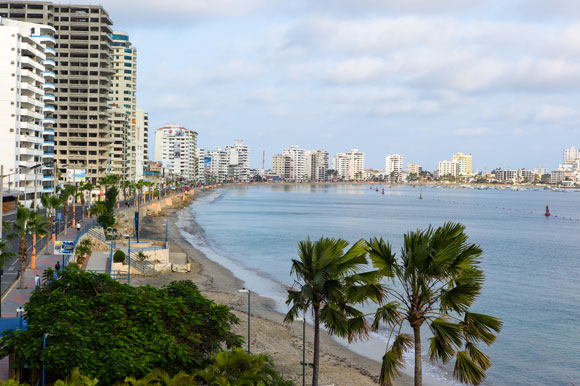
Tari Gliedt is no stranger to travel. As a former civilian contractor for the U.S. military, she “must have visited or lived for at least a few months in 30 countries,” including Bahrain, Thailand, India, Kenya, Australia, and Spain, she says.
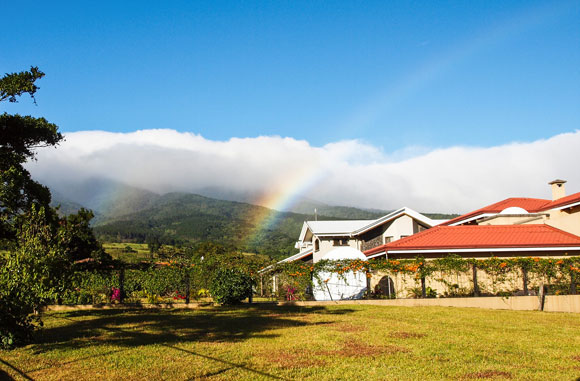
"The main difference between my life now and when I lived in the U.S. is the level of stress,” says Robert Reed, 60, of his retirement to Costa Rica’s Central Valley. “Since retiring to Costa Rica, I’ve downsized my possessions and living style."
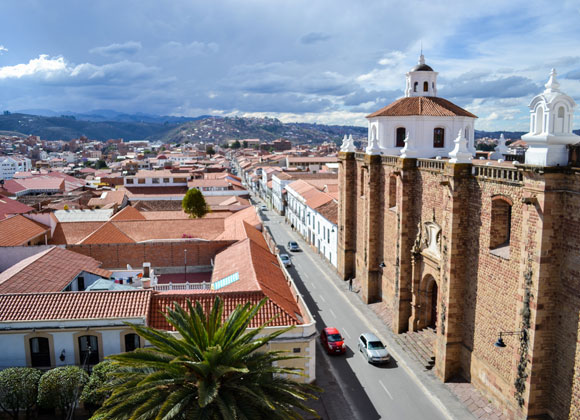
Of all the colonial cities I’ve visited in Latin America, Sucre, in the south-central Bolivian Andes, is my favorite. It is packed full of history, architecture, and immaculately maintained parks.
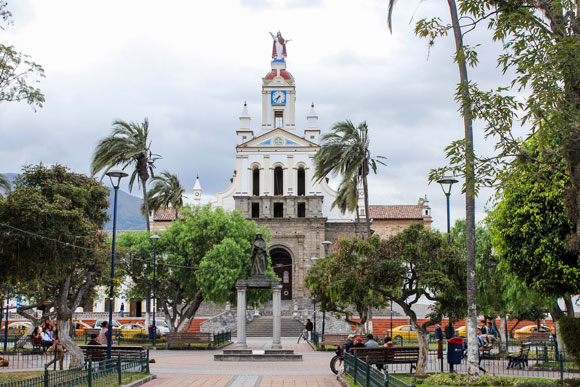
"It is like people are more authentic here,” says expat Marilyn Keller of what drew her to a small town on Ecuador’s coast. “You feel like friendship means more; people really connect with one another."
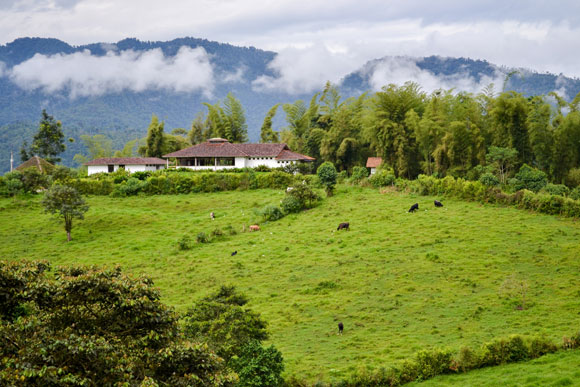
Have you ever dreamed of living in a cozy cloud forest bungalow? At night the soft rain slips off the broad banana leaves and delicate orchid flowers in your backyard.
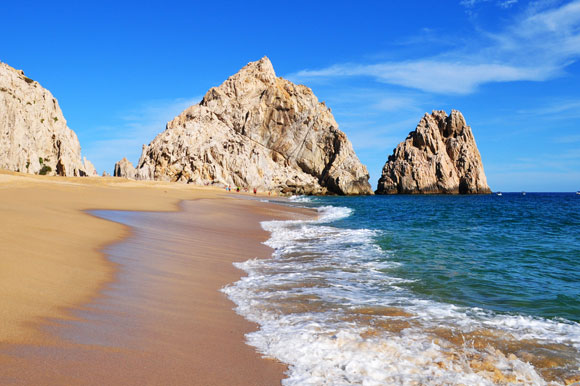
Multi-million-dollar yachts moor in the deep blue waters of the Sea of Cortez. The hills sloping down to the shoreline are dotted with luxury homes. Billions of dollars are being pumped into Cabo, on Mexico’s Baja California Peninsula.
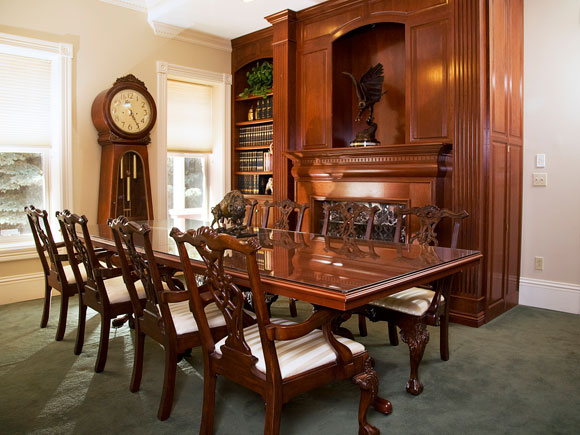
As a British antiques dealer, I like to keep an eye on what’s going on in the U.K.’s auction rooms. For the past few years, I’ve noticed a huge upsurge in what is unflatteringly called “brown furniture.”
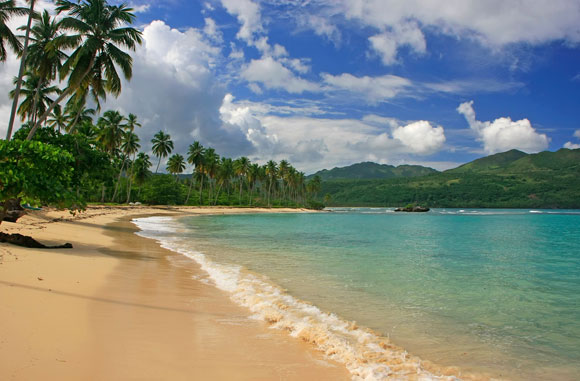
For Robert Cooper, 64, the difference between driving a car and riding a motorcycle is clear. “In a car you’re always in a compartment. And because you’re used to it, you don’t realize that, through that car window, everything you see is just like watching TV."
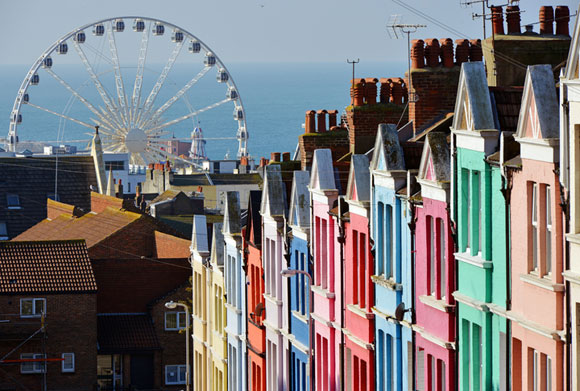
For centuries, Brighton, on England’s southern coast, has been a fashionable seaside escape for weary Londoners fleeing the capital’s bustling streets (after all, it’s only an hour from London by train).